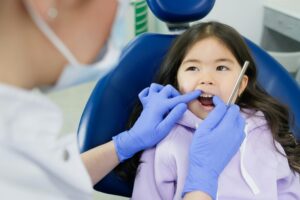The Importance of Proper Dental Care for Your Child’s Milk Teeth
Introduction
When it comes to our children’s health, it’s easy to overlook the importance of seemingly minor issues, such as milk teeth. Yet, these early teeth play a crucial role in your child’s overall well-being. Dr. Shubhada Kasat, a leading pediatric dentist, emphasizes that neglecting milk teeth can have far-reaching consequences. In this blog, we’ll explore “5 Eye-Opening Reasons to Stop Ignoring Your Child’s Milk Teeth” shedding light on why these early teeth are more than just placeholders and how proper care can prevent costly dental problems in the future. Discover why Dr. Kasat’s insights highlight the vital role of deciduous teeth in your child’s dental health journey.
Understanding the Role of Milk Teeth
1. Foundation for Permanent Teeth
Milk teeth also known as deciduous dentition serve as the essential foundation for permanent teeth. They guide the eruption pattern of permanent teeth. If they are lost prematurely due to neglect or decay, it can disrupt the eruption pattern of permanent teeth, leading to malalignment and potential orthodontic issues. Proper care ensures that these guiding teeth do their job effectively, setting up your child for a healthier, straighter smile in the future.
2. Preventing Oral Health Complications
Neglecting deciduous teeth can lead to various oral health problems. Untreated cavities in milk teeth can lead to infections and pain, impacting your child’s ability to eat, speak, and concentrate at school. Early intervention and regular dental check-ups can prevent these complications, ensuring your child remains comfortable and healthy.
3. Supporting Proper Chewing and Speaking Development
Milk teeth play a critical role in the development of proper chewing and speaking abilities. Milk teeth are instrumental in helping children learn to speak clearly and effectively. They provide support for the tongue and lips, allowing for proper pronunciation of sounds. It also enables children to chew food properly, aiding in digestion and nutrient absorption. They also contribute to a child’s facial structure and appearance. If these teeth are not maintained, your child might experience difficulties with chewing food properly, which can affect their nutrition. Additionally, clear speech development can be hindered if milk teeth are lost too soon or are damaged.
4. Building Healthy Dental Habits
Establishing good dental hygiene practices from an early age is crucial. Dr. Kasat stresses that caring for your baby’s teeth sets the stage for lifelong oral health habits. Regular brushing, flossing, and dental visits help instill these habits, ensuring that children understand the importance of dental care. This foundation will likely carry over into adulthood, reducing the risk of serious dental issues later on.
5. Avoiding Costly Dental Procedures
Ignoring milk teeth can lead to significant long-term costs. Dr. Shubhada Kasat explains that neglecting early dental problems often results in more complex and costly procedures down the line. Preventive care and timely treatment of milk teeth can mitigate these expenses and save you from facing expensive dental interventions as your child grows.
Consequences of Ignoring Milk Teeth
Tooth decay and cavities in milk teeth
Neglecting proper dental care for milk teeth can lead to tooth decay and cavities, causing pain and discomfort for the child. This can impact their ability to eat and speak comfortably.
Impact on permanent teeth if milk teeth are neglected
The health of milk teeth directly influences the health of permanent teeth. If milk teeth are not cared for, it can result in issues like overcrowding and misalignment in the permanent dentition.
Potential long-term health risks associated with ignoring milk teeth
Untreated dental problems in milk teeth can lead to infections, gum disease, and even systemic health issues like heart disease if bacteria from the mouth enter the bloodstream.

Visit for Routine Dental Check up every 6 months
Importance of Early Intervention
The benefits of regular dental check-ups for children
Early dental visits can help identify any issues with milk teeth and address them before they escalate. Regular check-ups also allow for preventive measures to be taken, such as dental cleanings and fluoride treatments.
Tips for parents on how to properly care for their child’s milk teeth
Parents play a crucial role in maintaining their child’s oral health. Encouraging good oral hygiene habits like brushing twice a day, flossing, and limiting sugary snacks can help prevent dental problems.
The role of a pediatric dentist in monitoring and treating milk teeth issues
Pediatric dentists specialize in children’s dental health and are equipped to address the unique needs of milk teeth. They can provide guidance on proper oral care and intervene early to prevent complications.
Conclusion
Proper dental care for milk teeth is vital for ensuring the overall health and well-being of children. By understanding the importance of milk teeth, addressing issues early, and prioritizing regular dental check-ups, parents can set their children up for a lifetime of healthy smiles.
FAQs:
At what age should a child start seeing a dentist?
Children should have their first dental visit by their first birthday or within six months of their first tooth erupting.
How can parents help their child maintain good oral hygiene?
Parents can help their child maintain good oral hygiene by encouraging regular brushing and flossing, limiting sugary snacks, and scheduling routine dental check-ups.
What are the signs of dental issues in milk teeth that parents should watch out for?
Parents should watch out for signs of tooth pain, sensitivity, discoloration, swelling, and difficulty eating or speaking, as these could indicate dental problems in milk teeth.


